[Editor: Few artists have as deep a catalog of music and body of sonic works as Robin Rimbaud aka. Scanner. He has made everything from avant-garde ambient to sound art, so it is a particular treat that he took the time to do this interview and share insights into his way of making music and being creative. Enjoy]
1. Favourite knob or fader or switch on a piece of gear and why?
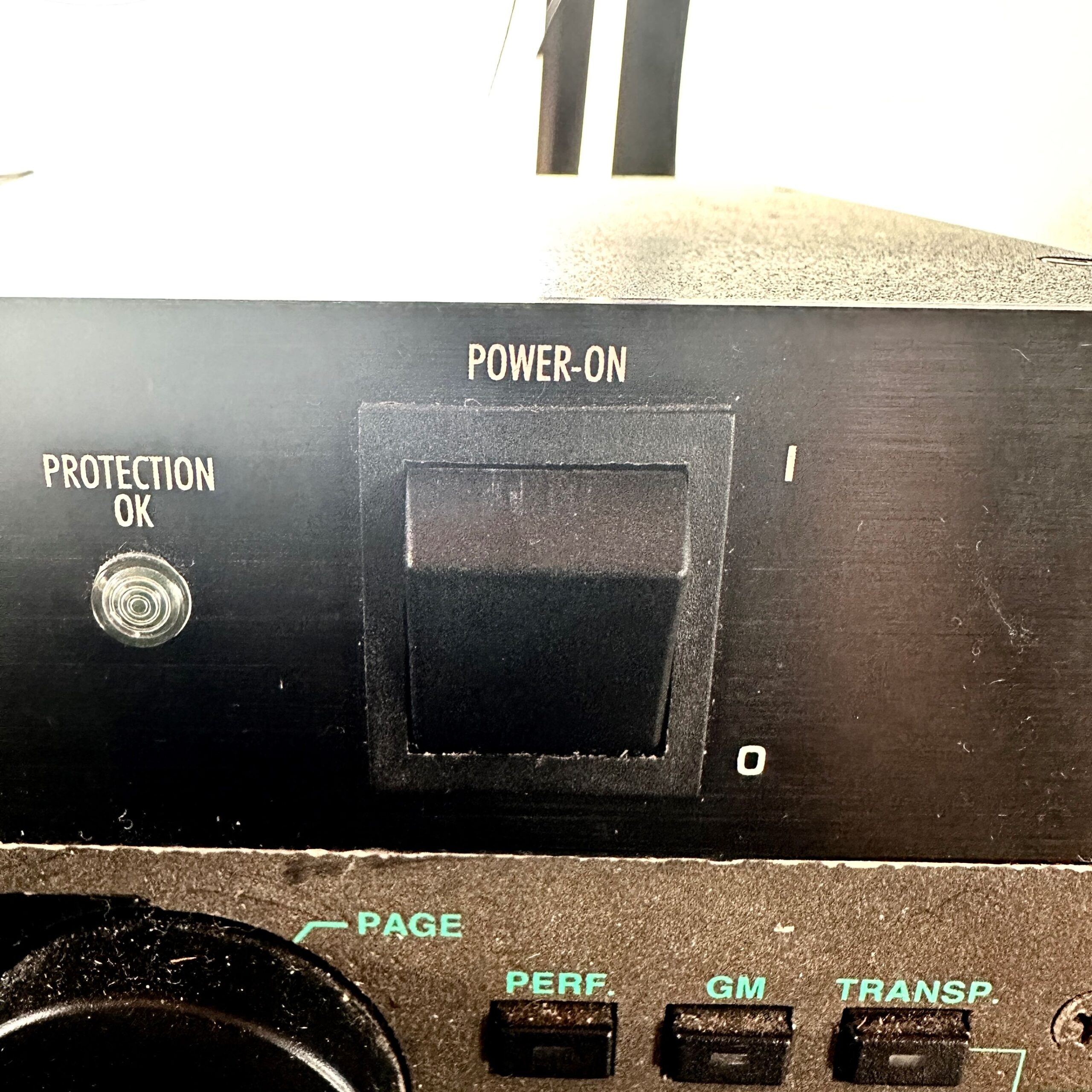
I would choose the power switch on my Furman M-10 X E Power Conditioner,
since once I flick it to ON, then the studio lights up and the fun can begin. It’s not
especially pretty or appealing, but it’s like opening a door to a new world every
time.
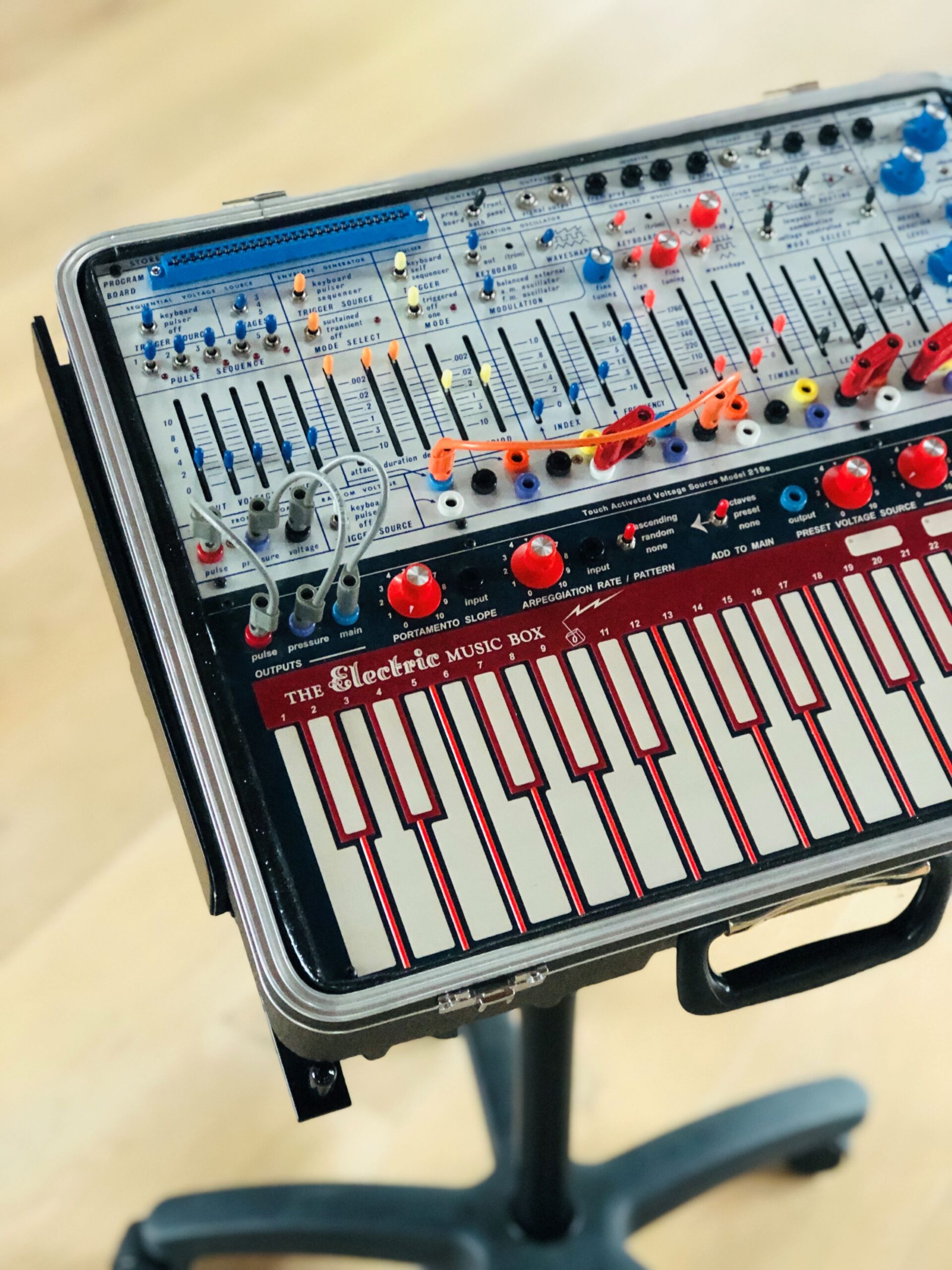
2. Do you have an ‘almost’ perfect bit of kit? What would you change?
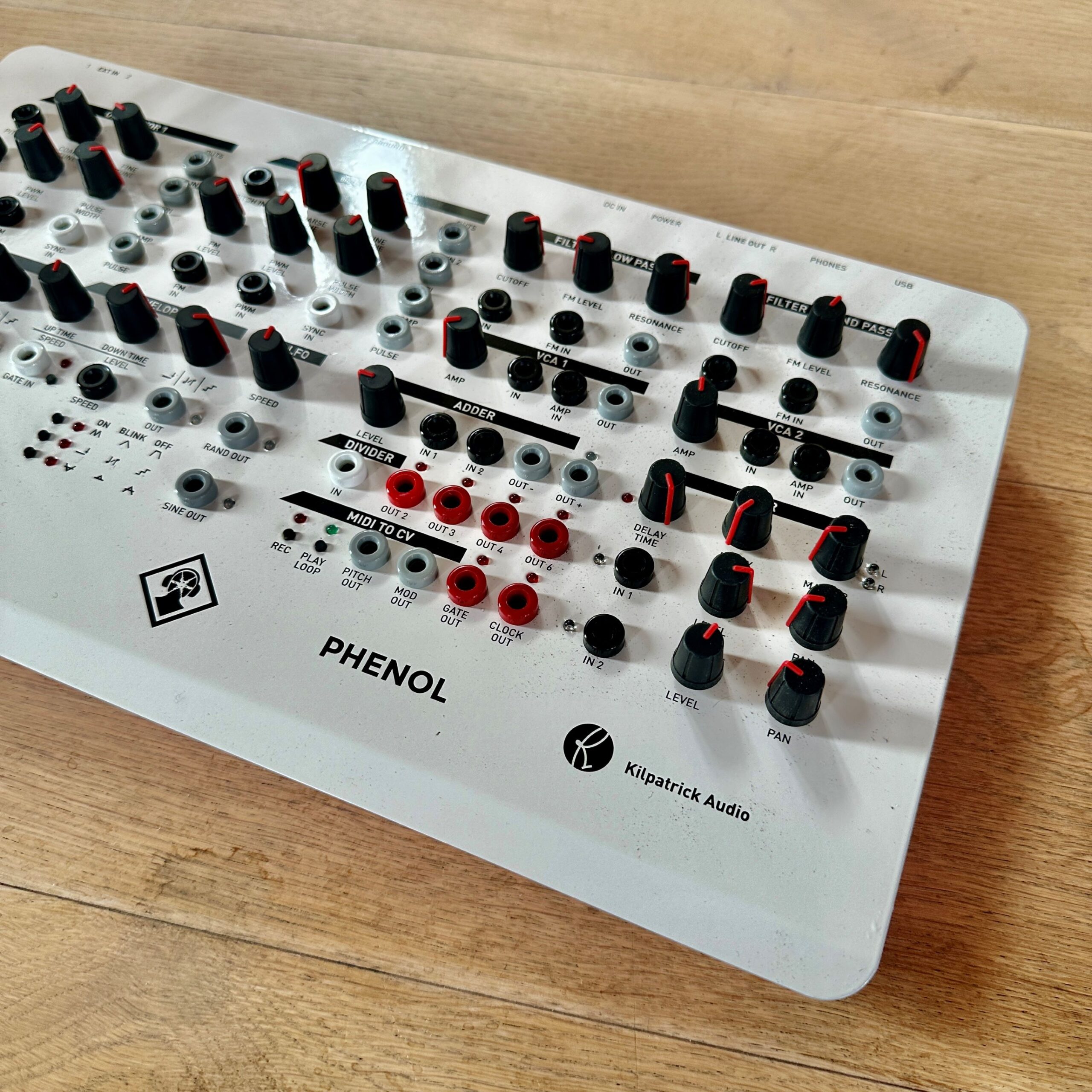
I’m not sure anything is near perfect, since there are always aspects you wish you
could change or develop, but there are certain pieces of gear that I return to, such
as the Kilpatrick Phenol Synth. I first bought it via a Kickstarter campaign and
immediately bonded with it. In fact, when I spent 6 weeks on the Rauschenberg
Residency in Captiva Florida back in 2017, it was the only instrument I took with
me. Indeed, it’s the only voice on this entire album
(https://scanner.bandcamp.com/album/the-phenol-tapes).
It’s limited, but that’s appealing. I would love for the digital delay to be able to be to be synced, but heck, that’s a small criticism. And I liked it so much, I now have two!
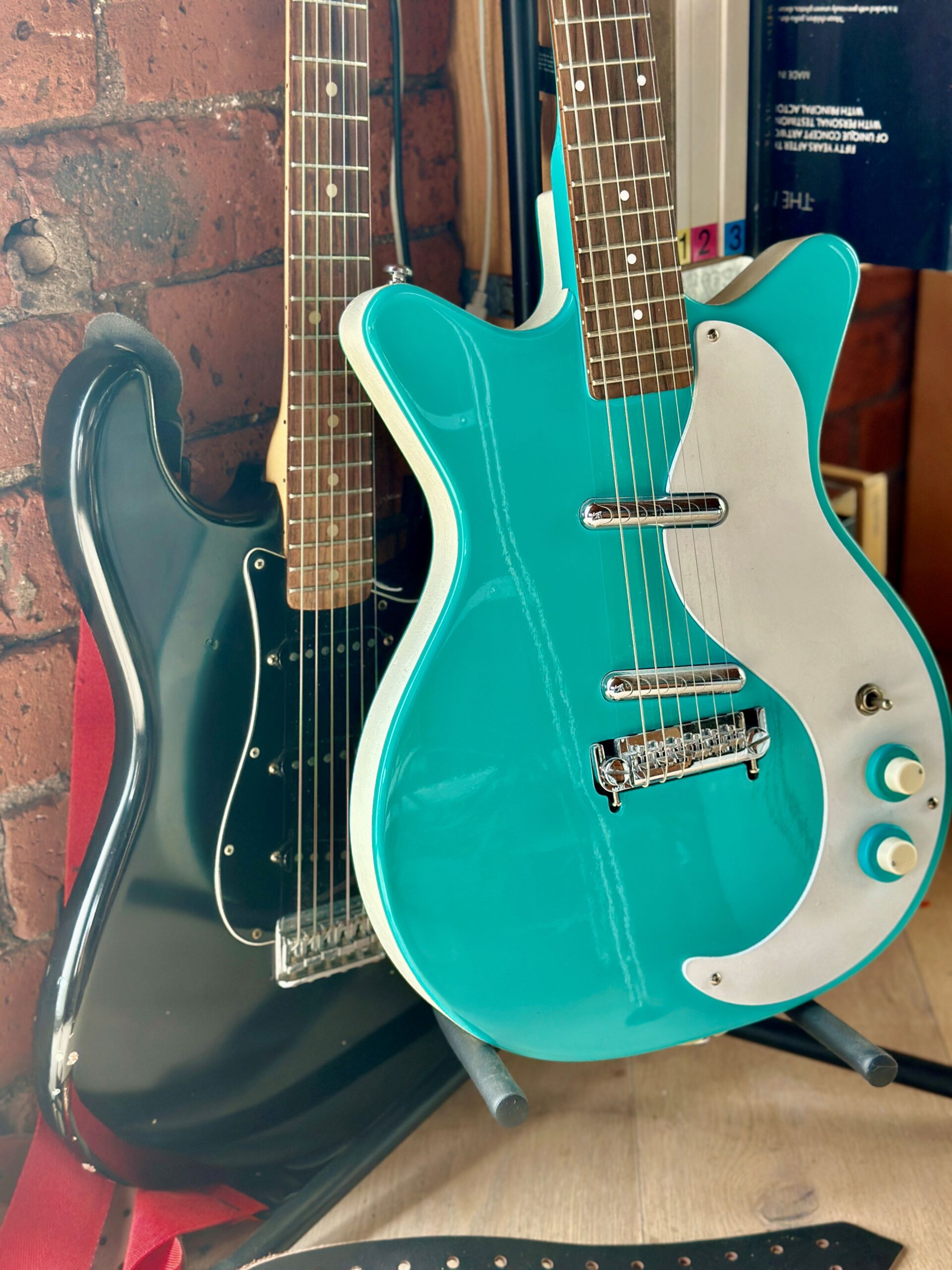
3. What setup do you bring on holiday or tour or commute etc.?
I don’t travel with any set up for a holiday or a commute. Books are the only
essential items to accompany me on such trips. They are holidays for a reason!
Nor do I tour as an artist, so that’s not a concept I need to consider.
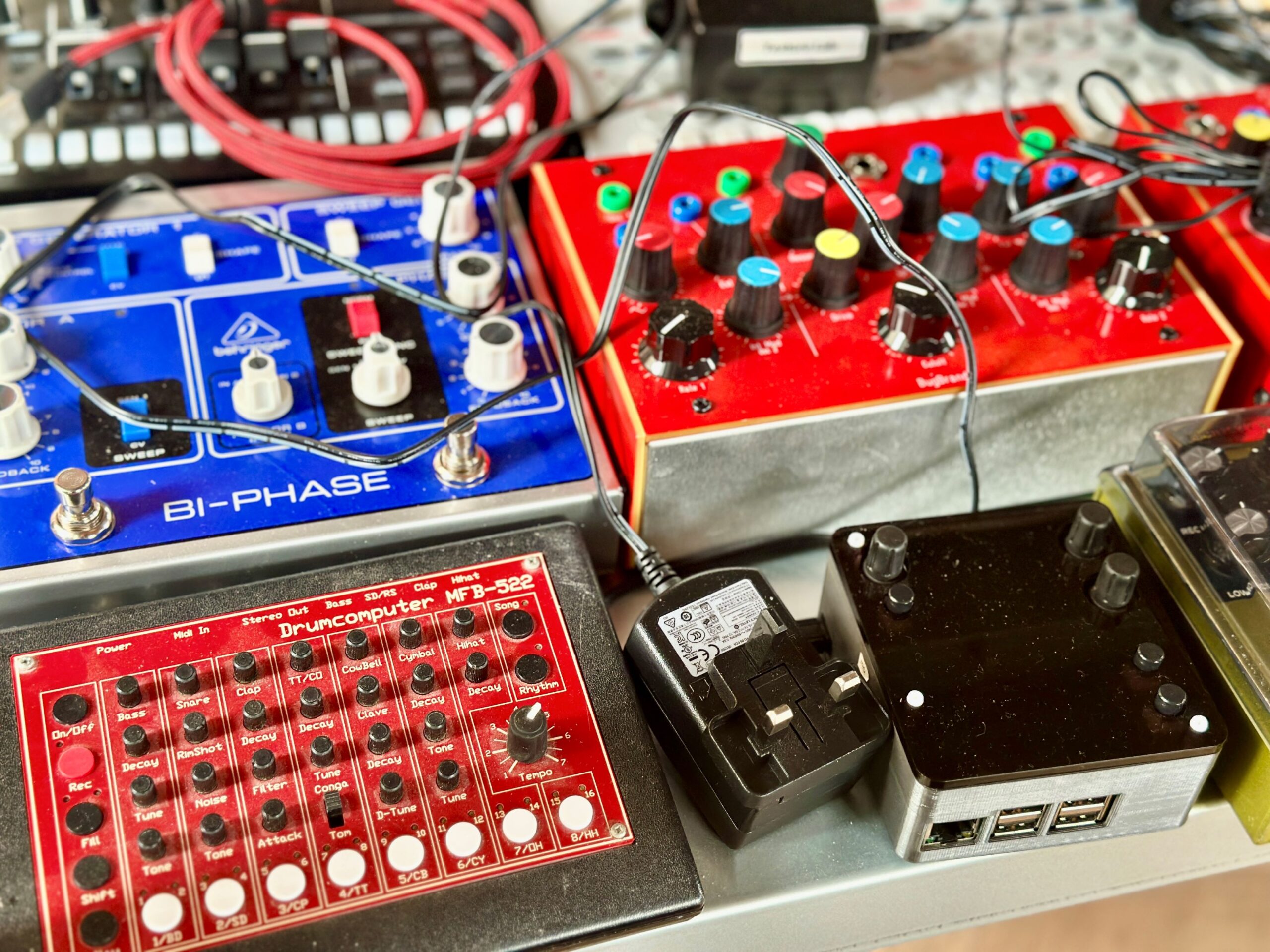
4. What software do you wish was hardware and vice versa?
Software remains as inspiring as hardware for me to be honest, and there’s no
need for them to be exchangeable. When I moved from hardware in the 90s to
using software it was such a revelation, but interfacing between the two is also
very rewarding. The development of Ableton CV Tools to communicate with my
modular system was revolutionary.
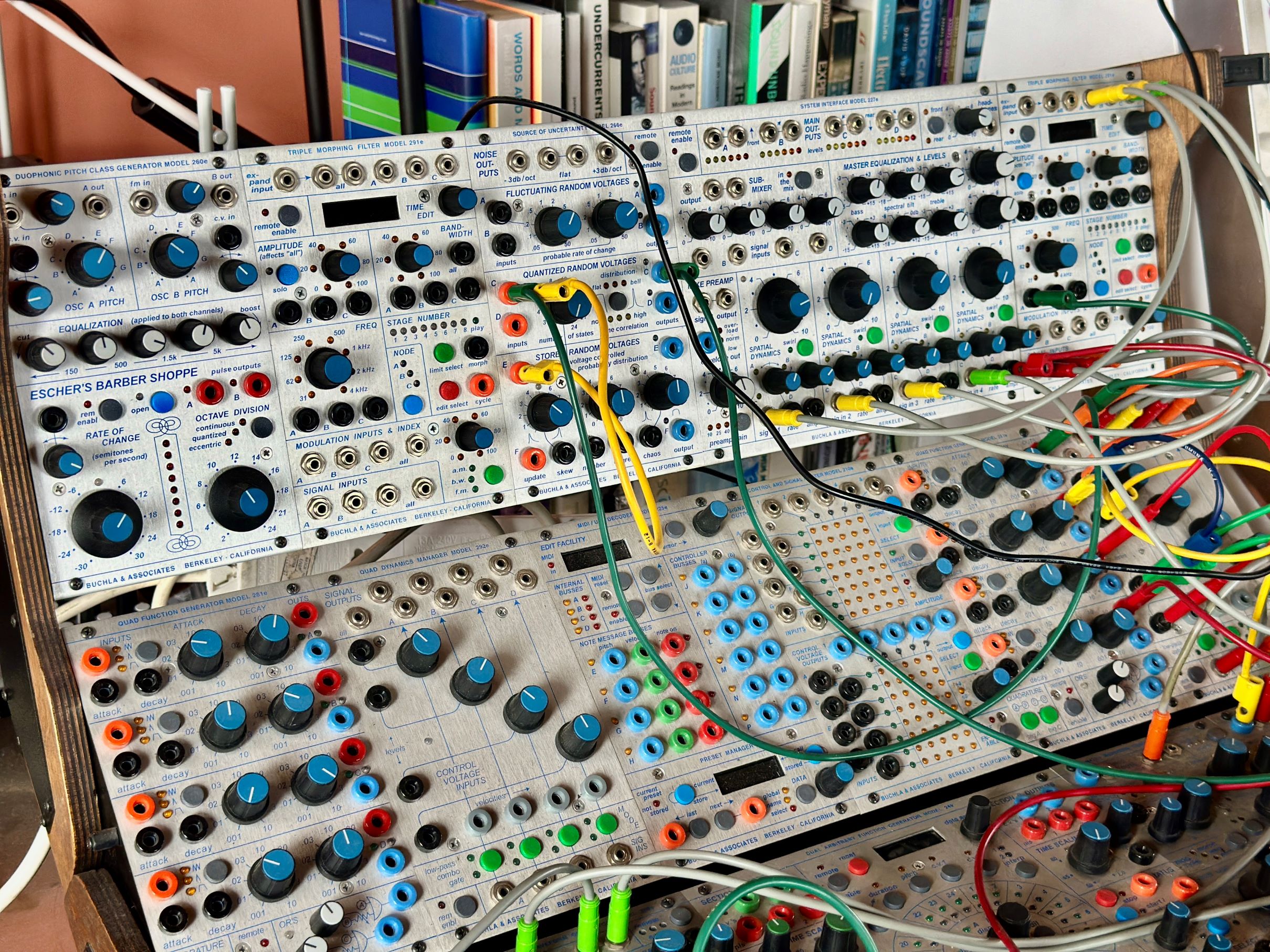
Some of the AudioThing software such as GongAmp and Noises are inspired from
hardware, but I would actually love to have them in compact hardware form too.
And if Fabfilter were to move into developing hardware that would be exciting.
As for hardware into software, most of it has indeed been reverse-engineered,
and losing the physicality of the hardware would be disappointing.
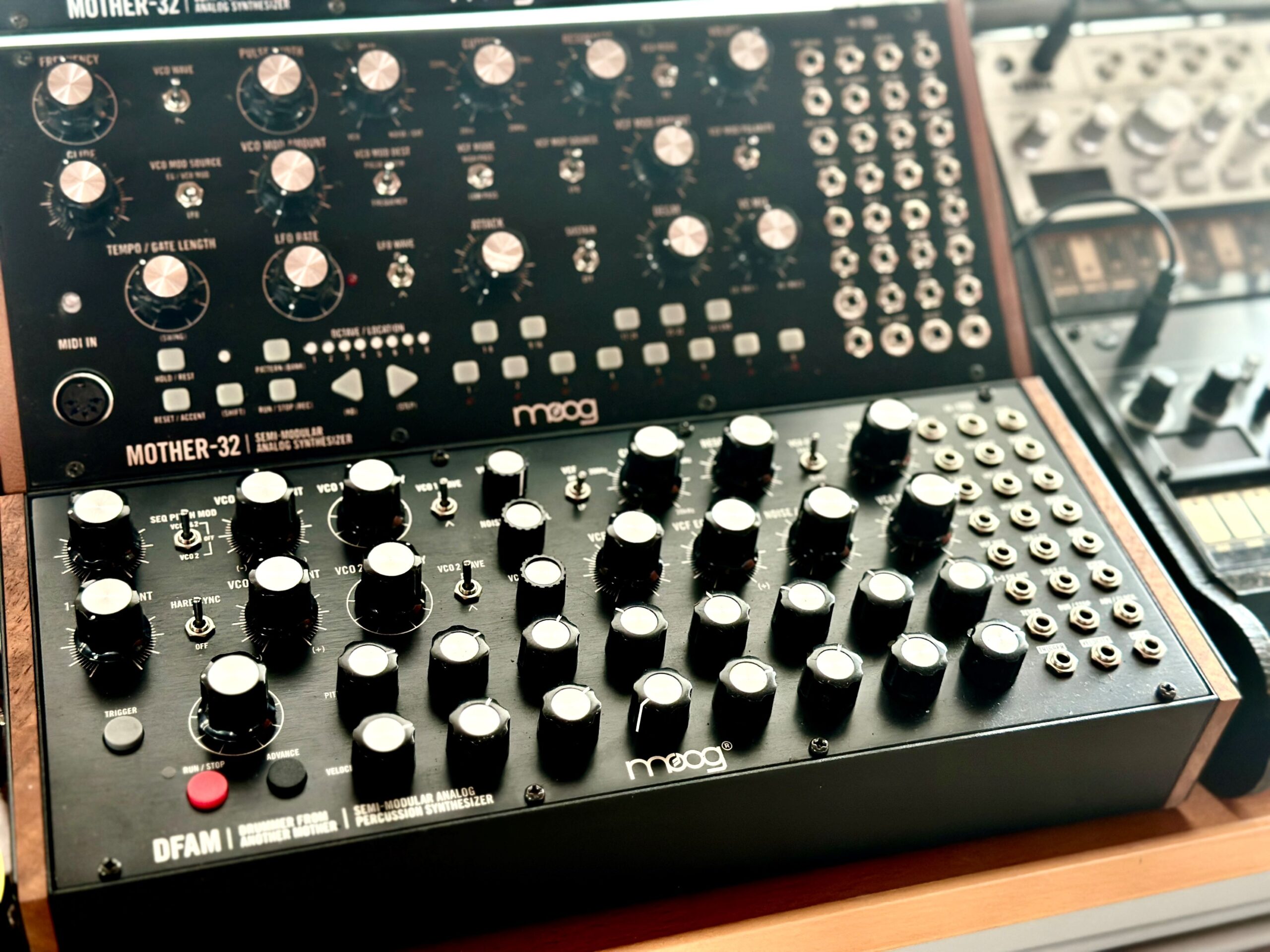
5. Is there anything you regret selling… or regret buying?
I’ve really not sold that much of my gear over the years, and indeed still treasure
things like my Fostex 280 Portastudio and Alesis Quadraverb, that I continue to
work with today. The items I have sold I have no desire to see return to the studio!
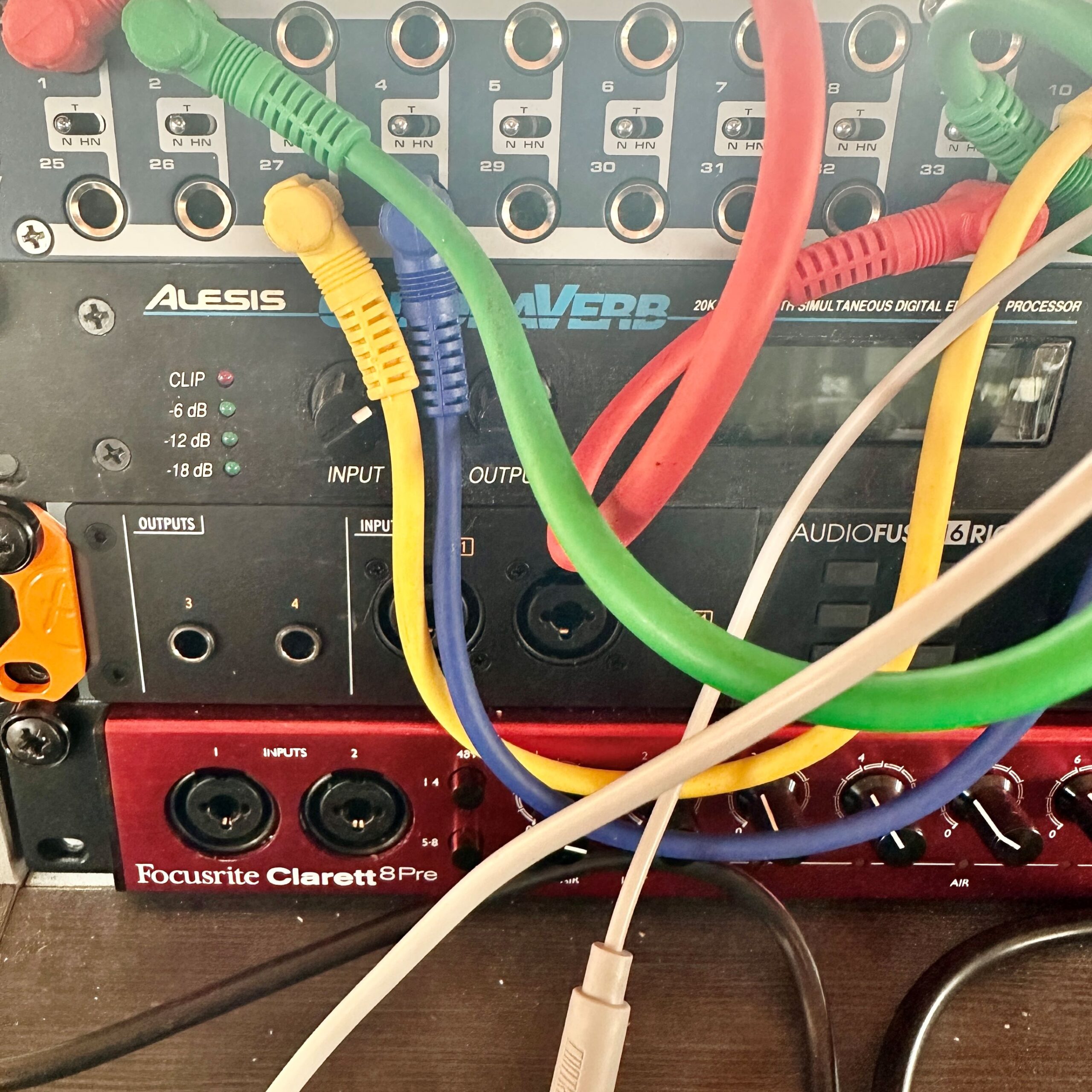
As for regrets? Back in 1993, I was working on my second Scanner album and used
an EMS Synthi to run all the sounds through, treating and processing them in
inventive and surprising ways. I was offered a chance to buy it for £150 at the
time, but I didn’t have the money, nor the space for anything else. Do I regret it?
Well, it was more important to eat and pay my rent to be honest!
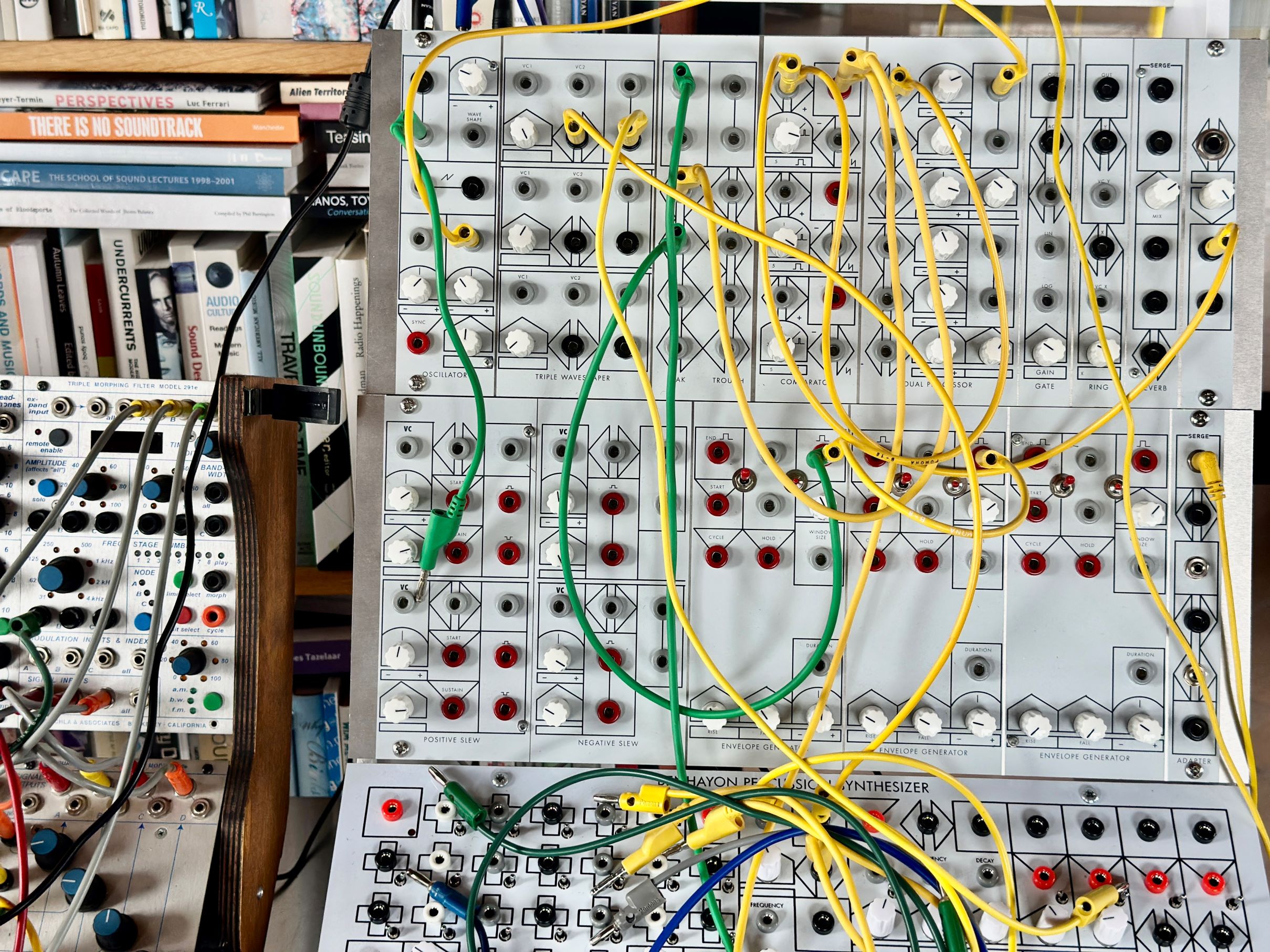
6. What gear has inspired you to produce the most music?
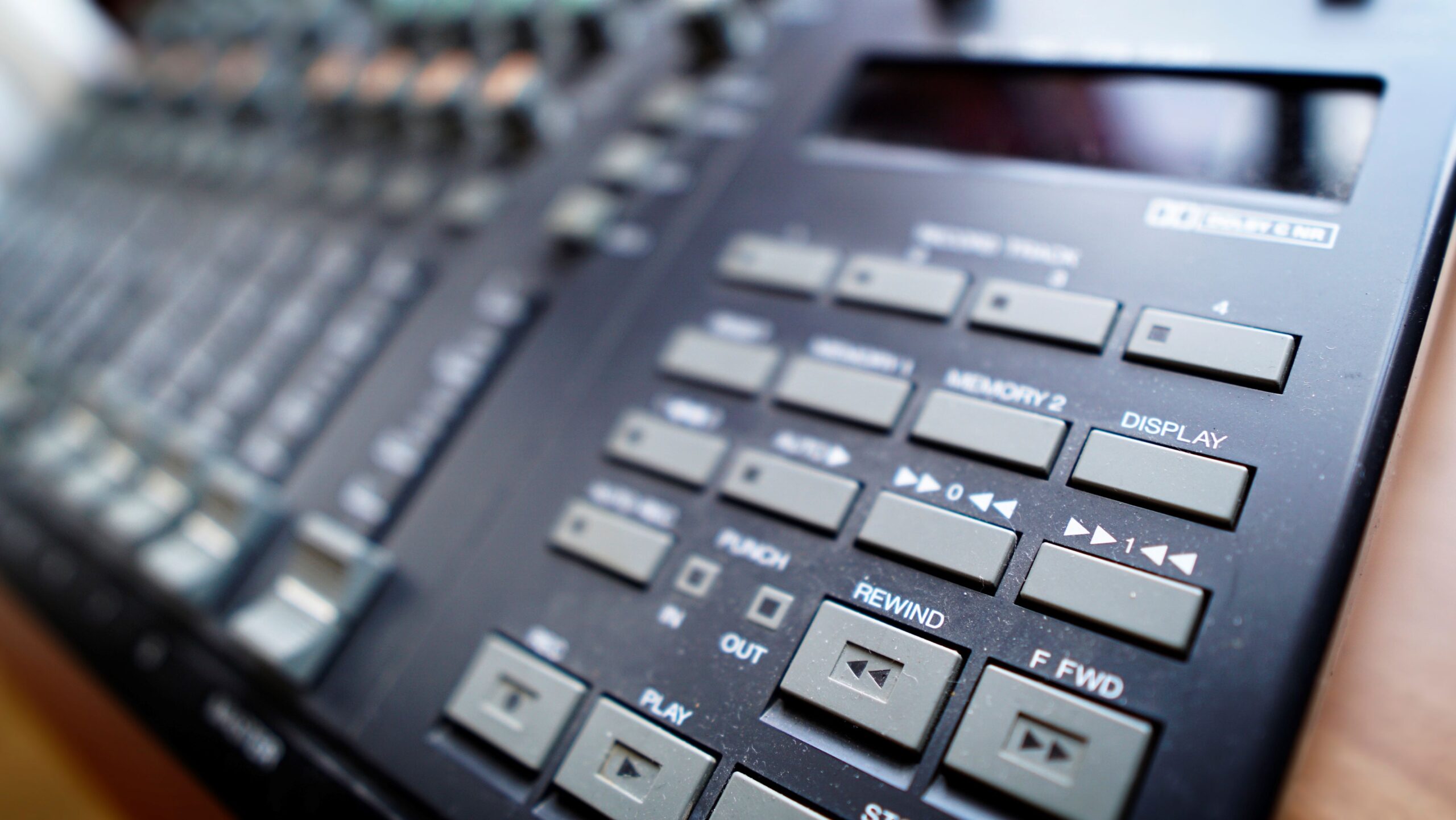
The purchase of the Fostex 280 4-track Portastudio when it was first released
brought about a vast amount of recording for me, followed closely by the Akai
S1000 sampler. Both of which were just outrageously expensive, the latter costing
close to £2000 at the time, and took me months and months to save up for it.
Once the Macintosh computer was developed it led me to creating even more
work, and so on with the development of modular synth systems. I’ve recorded at
least an hour of new music every month, usually significantly more, for the last 30
years, each time with the assistance of technology.
The development of the Softube Console 1 system has been revolutionary too in
terms of mixing and mastering my own work. It’s offered all the advantages of
hardware and software combined into a creative system that continues to inspire
me.
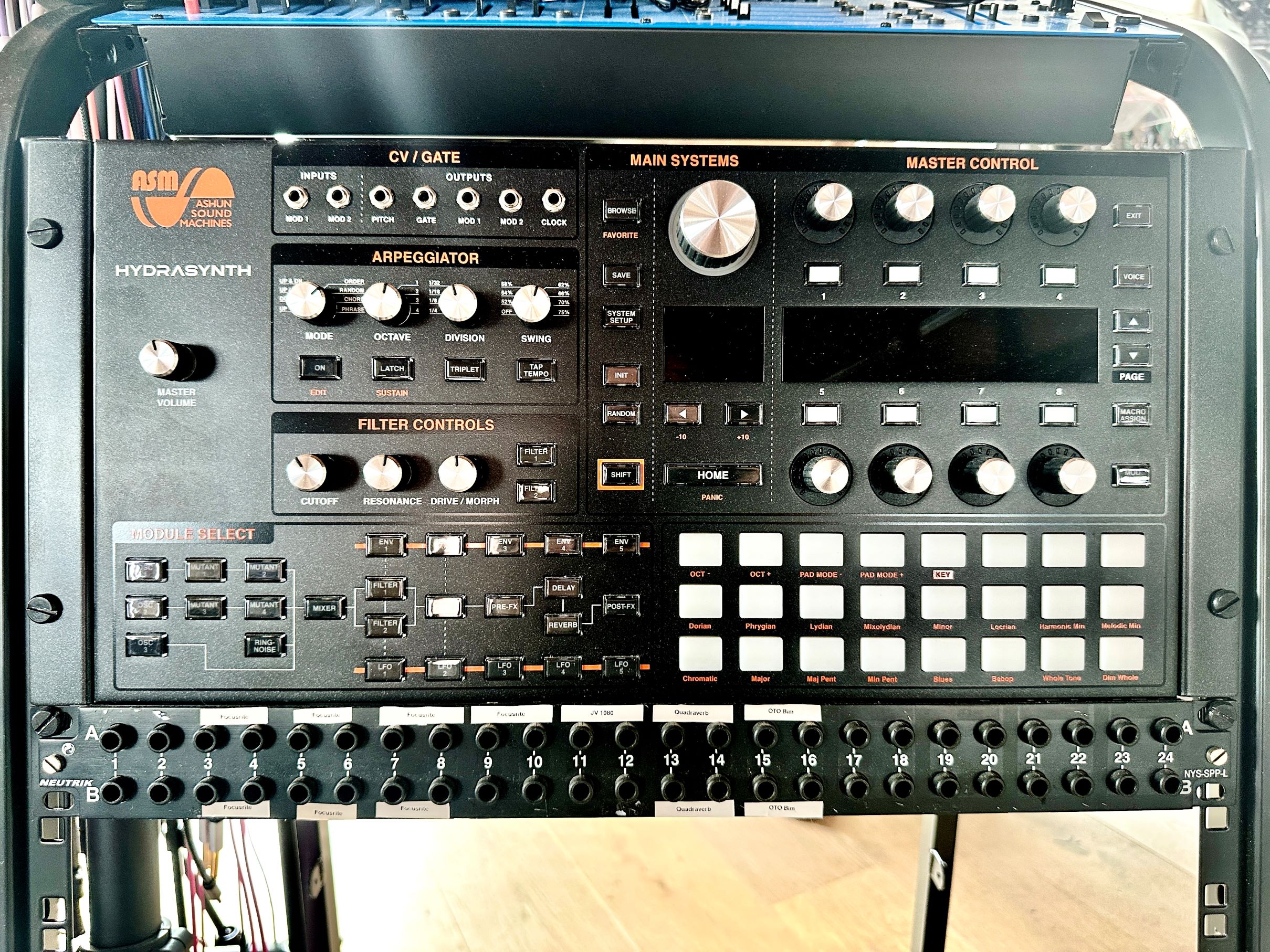
7. If you had to start over, what would you get first?
Again, it would depend on the budget. For many folks the use of an iPad or laptop is more than enough to develop ideas and help to find your sonic voice. The ability for a portable computer to be so much, from an entertainment system, a library, a world of films and sound, to a studio, is beyond comprehension at times.
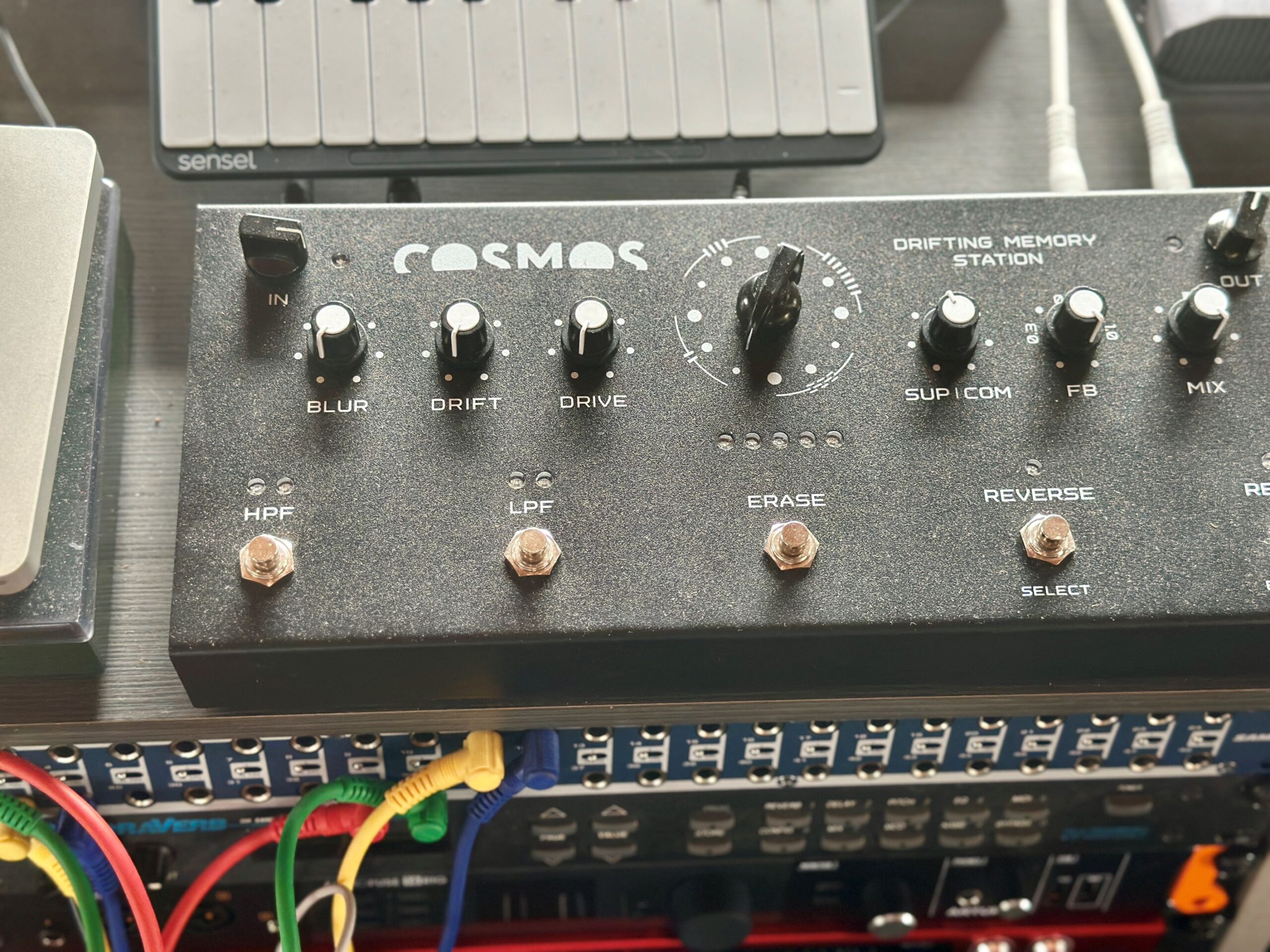
8. What’s the most annoying piece of gear you have, that you just can’t live without?
Probably the computer ironically. I’m constantly astounded at how companies worth billions can fail users sometimes in the most banal ways. I certainly can’t live without the computer at the hub of my studio, but it’s often painfully frustrating. If only software companies communicated with one another!
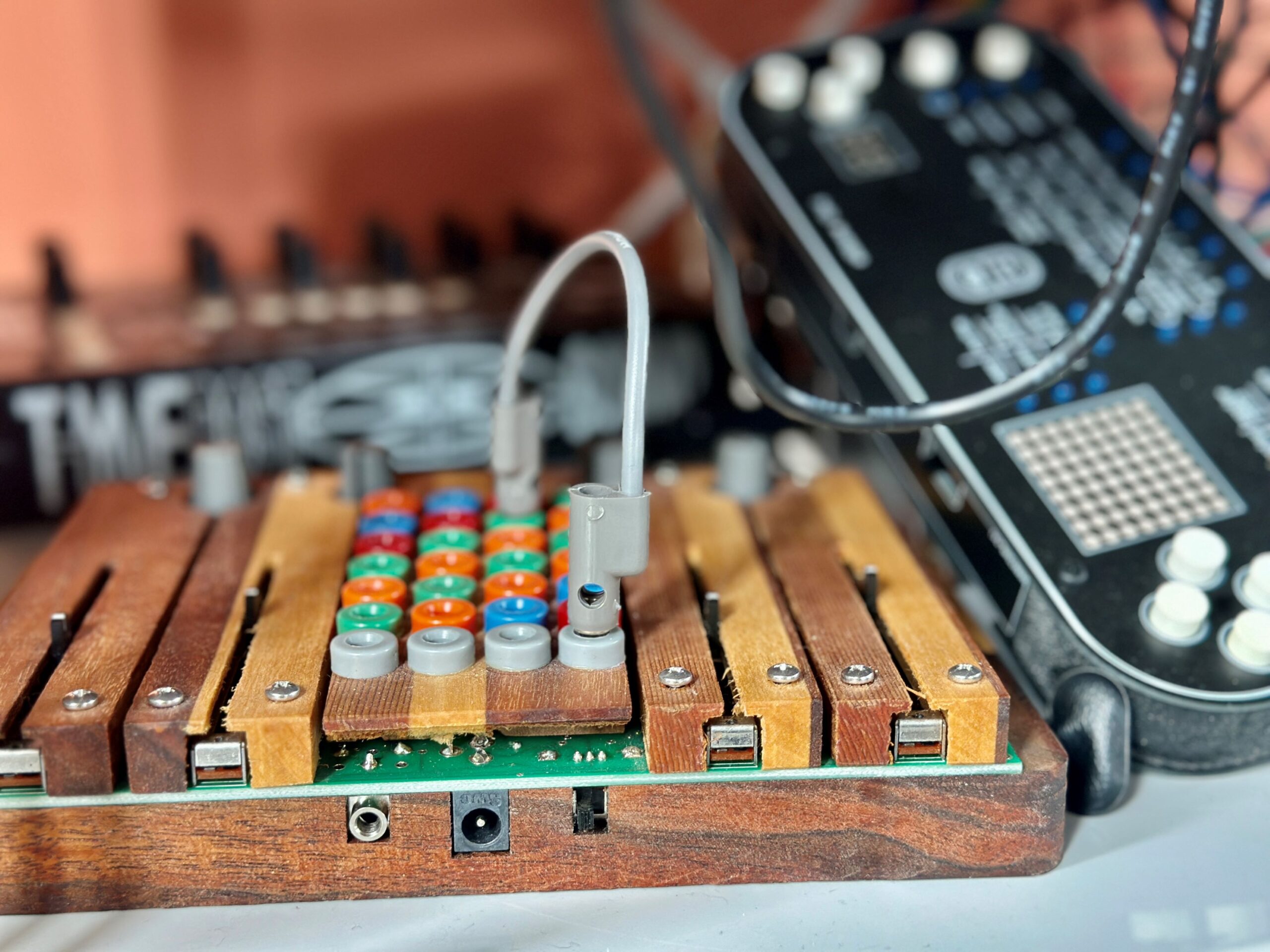
9. Most surprising tip or trick or technique that you’ve discovered about a bit of kit?
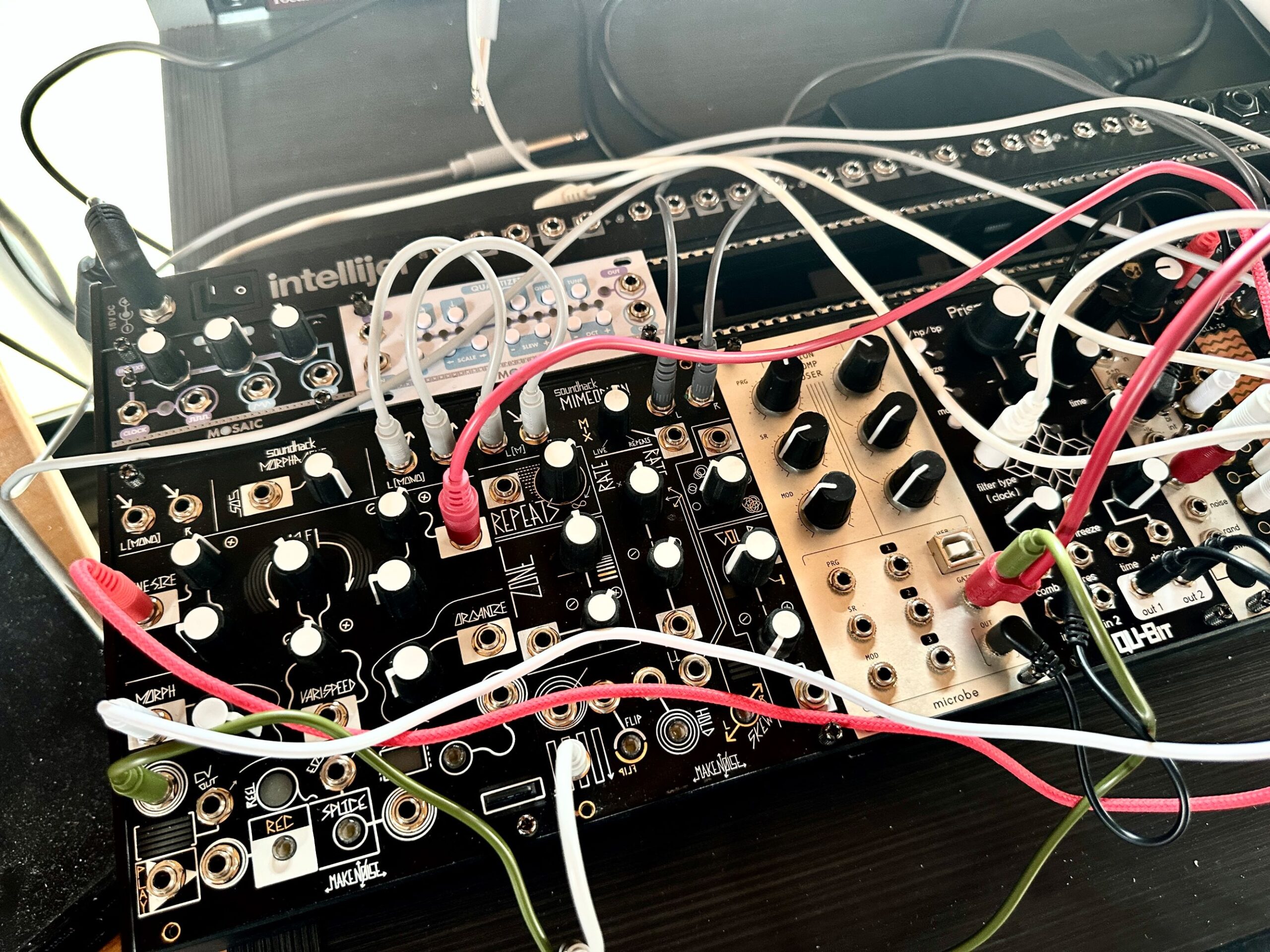
I am constantly learning personally. I watch music tutorials on gear almost every
day. Just this very morning I learnt new things about the Make Noise Maths
module that I never realised it could do before.
Artist or Band name?
Scanner
Genre?
Electronic / Flaneur Electronique
Selfie?

Where are you from?
Southfields in London
How did you get into music?
There was no ‘getting into’ it. It was ever present from my earliest memory and I was
recording with tape recorders from the age of 11. I still have all the cassettes too (not
necessarily for public consumption).
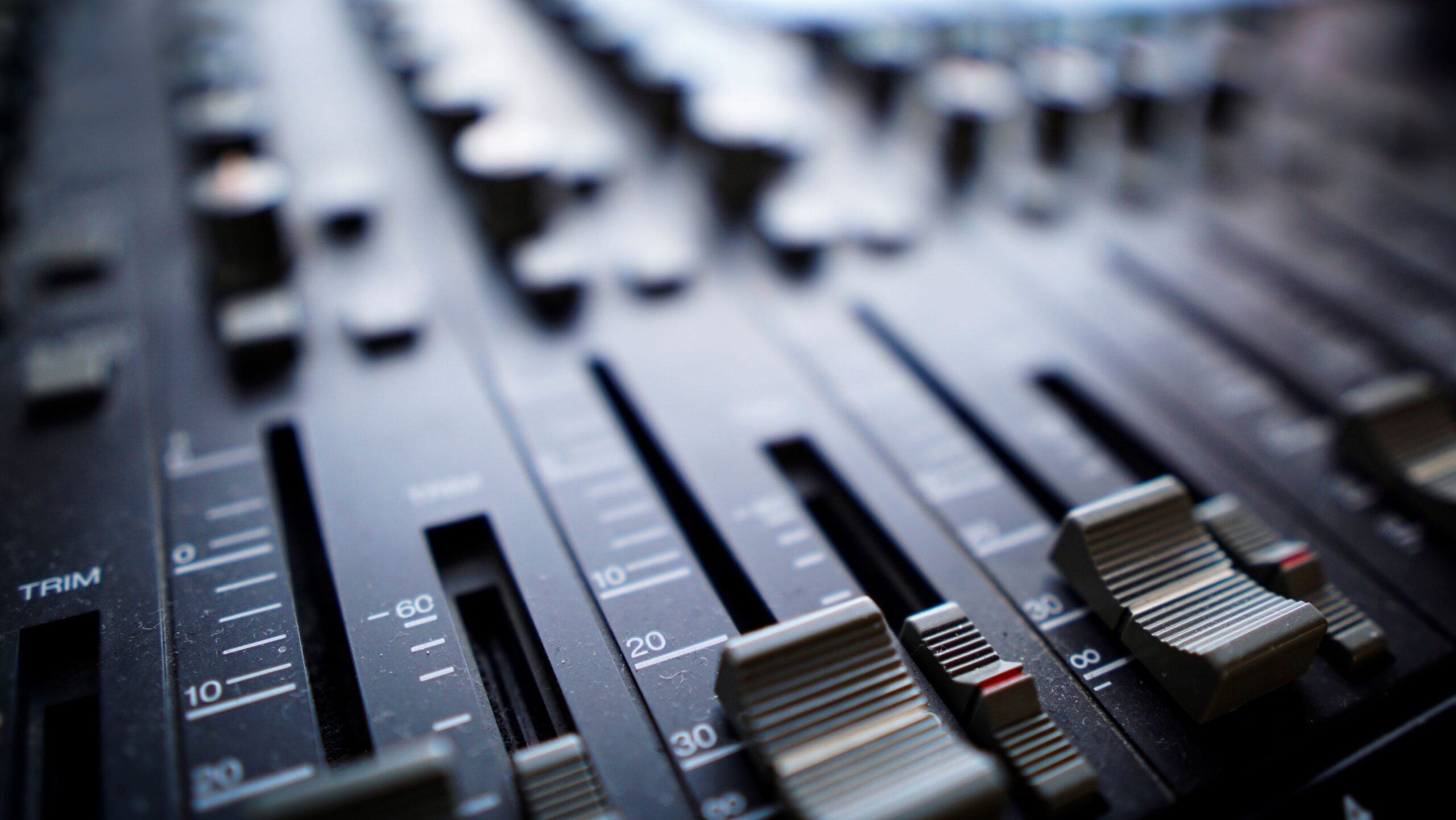
What still drives you to make music?
I met with my bank manager recently who asked me as to my plans for retirement and I looked at him with a blank stare. Is ’this,’ the very stuff of creative life, something I want to retire from? Never. When I fired the question back at him, he said he’d like to retire as soon as possible, though he was only about 35 years, and would play golf every day he said. I honestly could not think of a more boring life plan than that! So, music is my life.
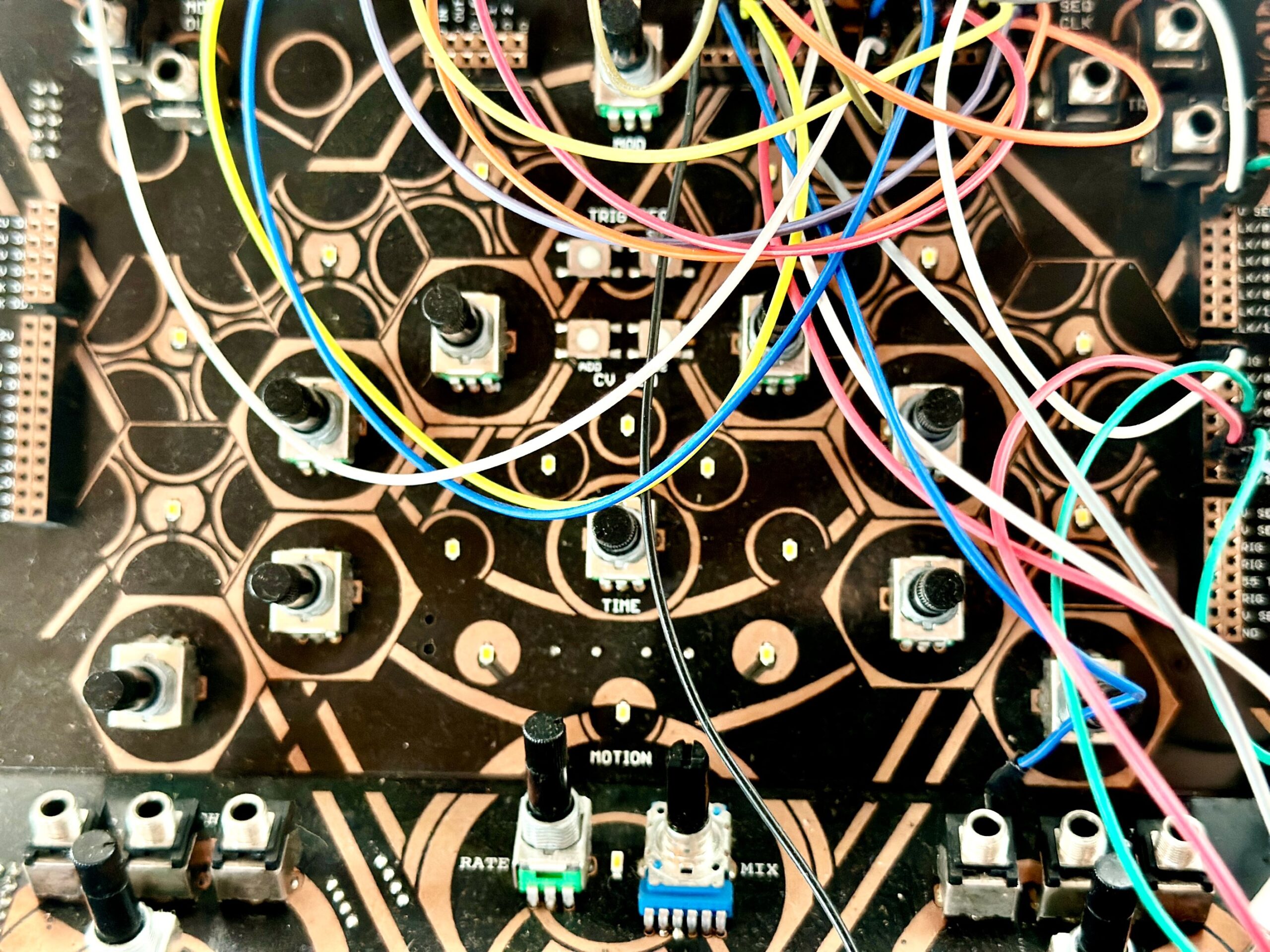
How do you most often start a new track?
I press that nice power switch on the Furman, the machines come alive and I simply begin with some sounds, quite often with a random choice and see what follows. Unless I’m working on commissioned work then there’s more of a structure, with a film or choreography to consider and respond to.
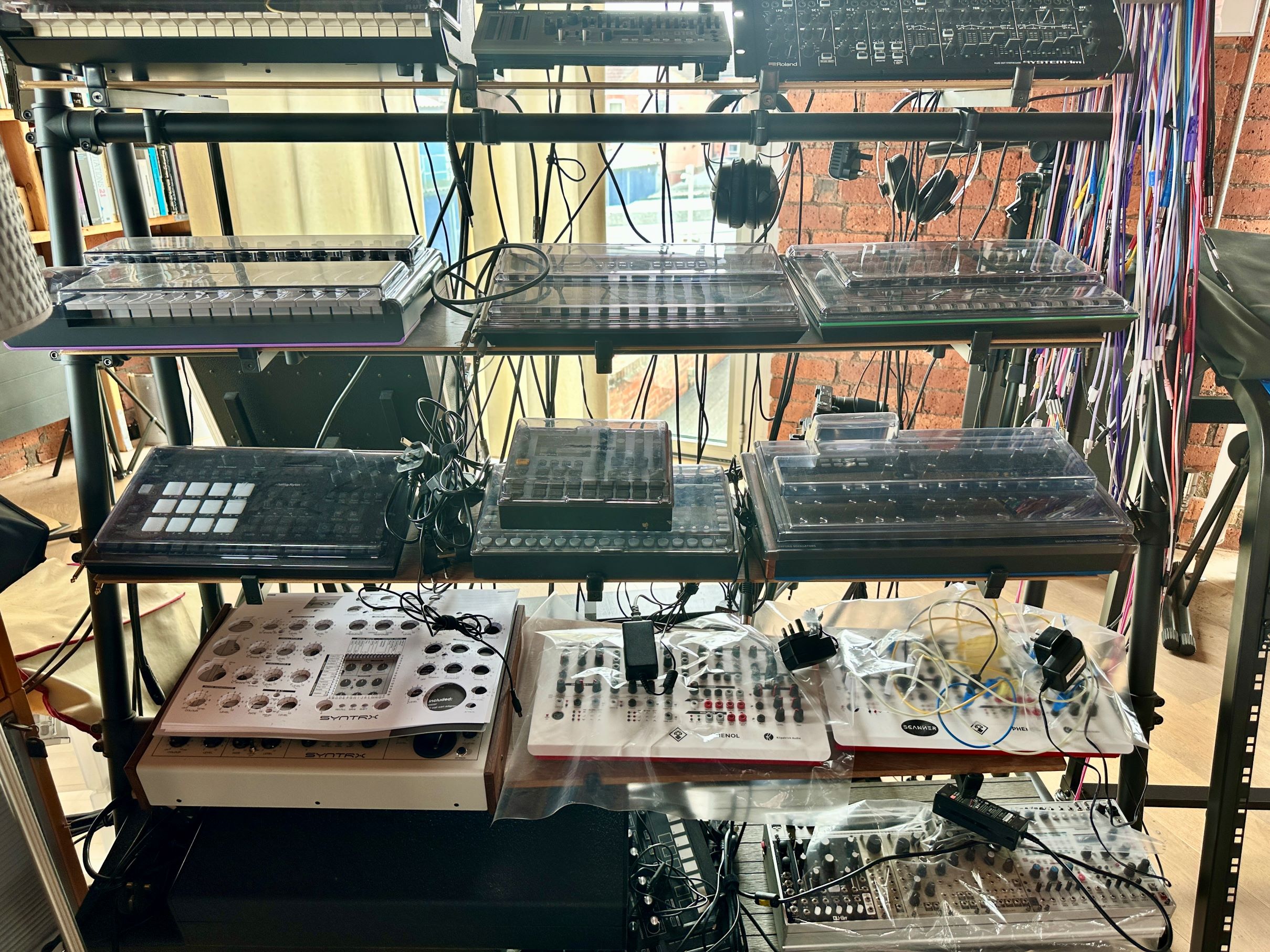
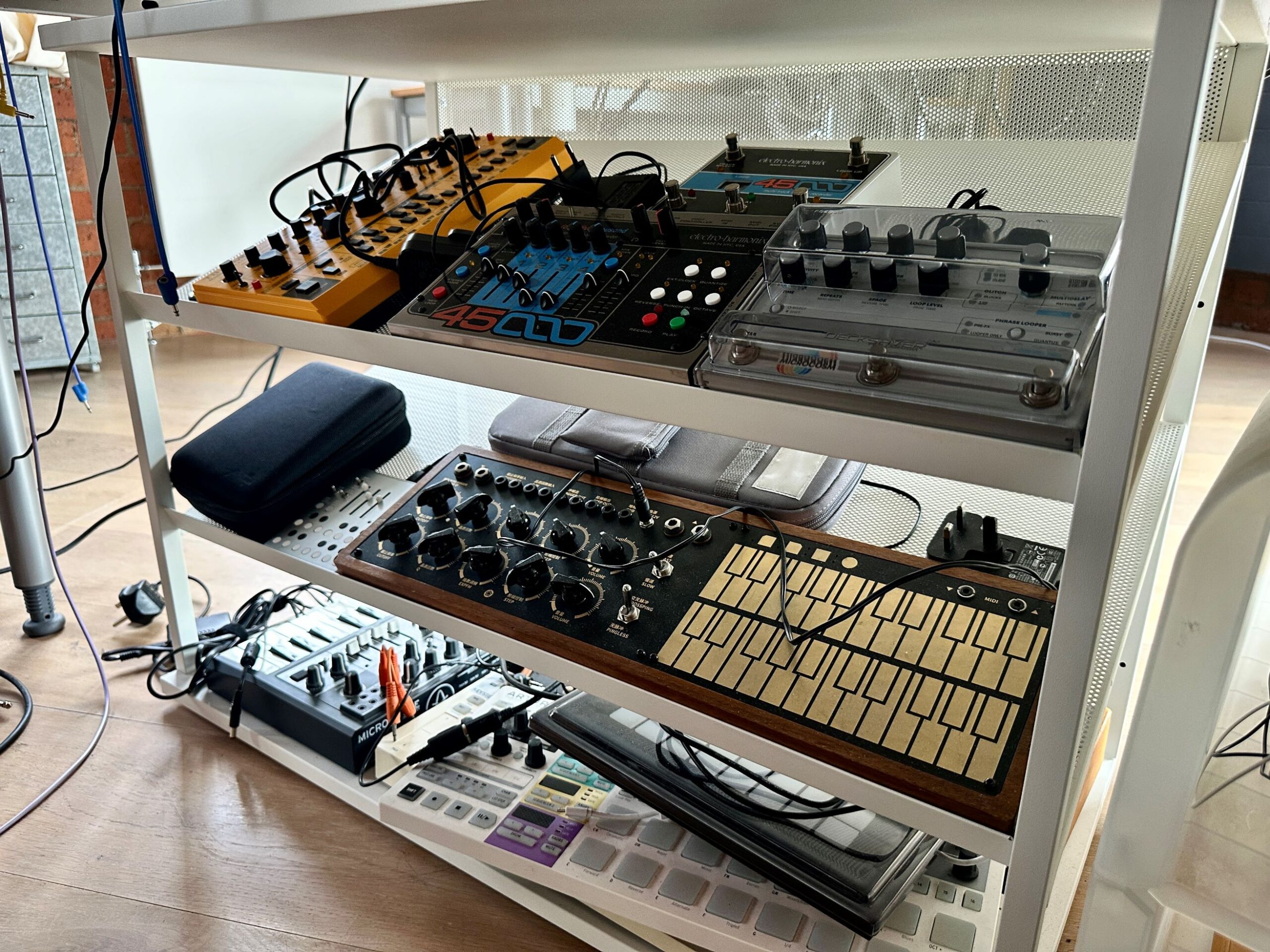
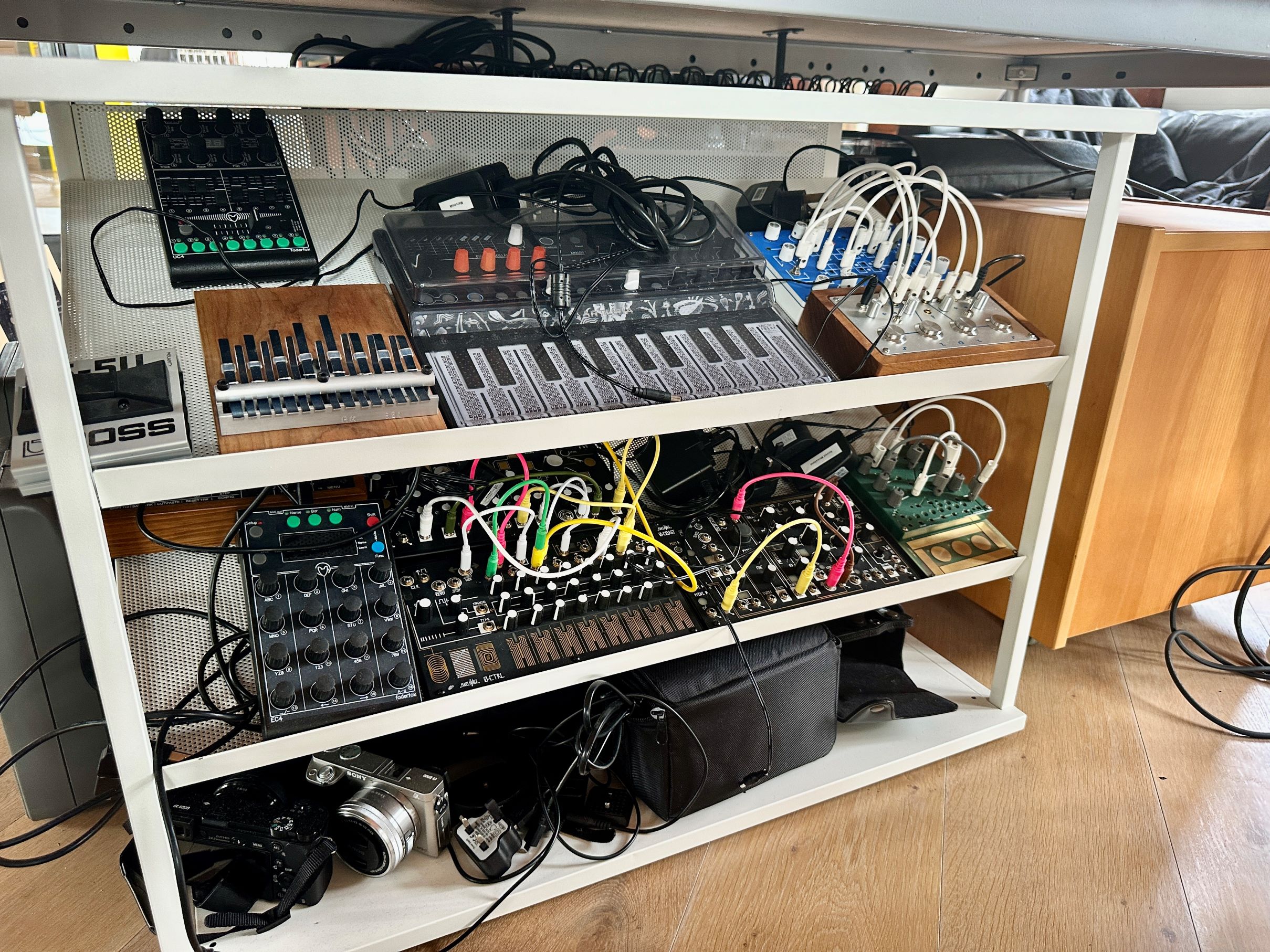
How do you know when a track is finished?
I’m rather a minimalist so many of my productions have very few stems in them. For me, a track is finished when I feel there is little more needed to tell the sonic story it’s telling.
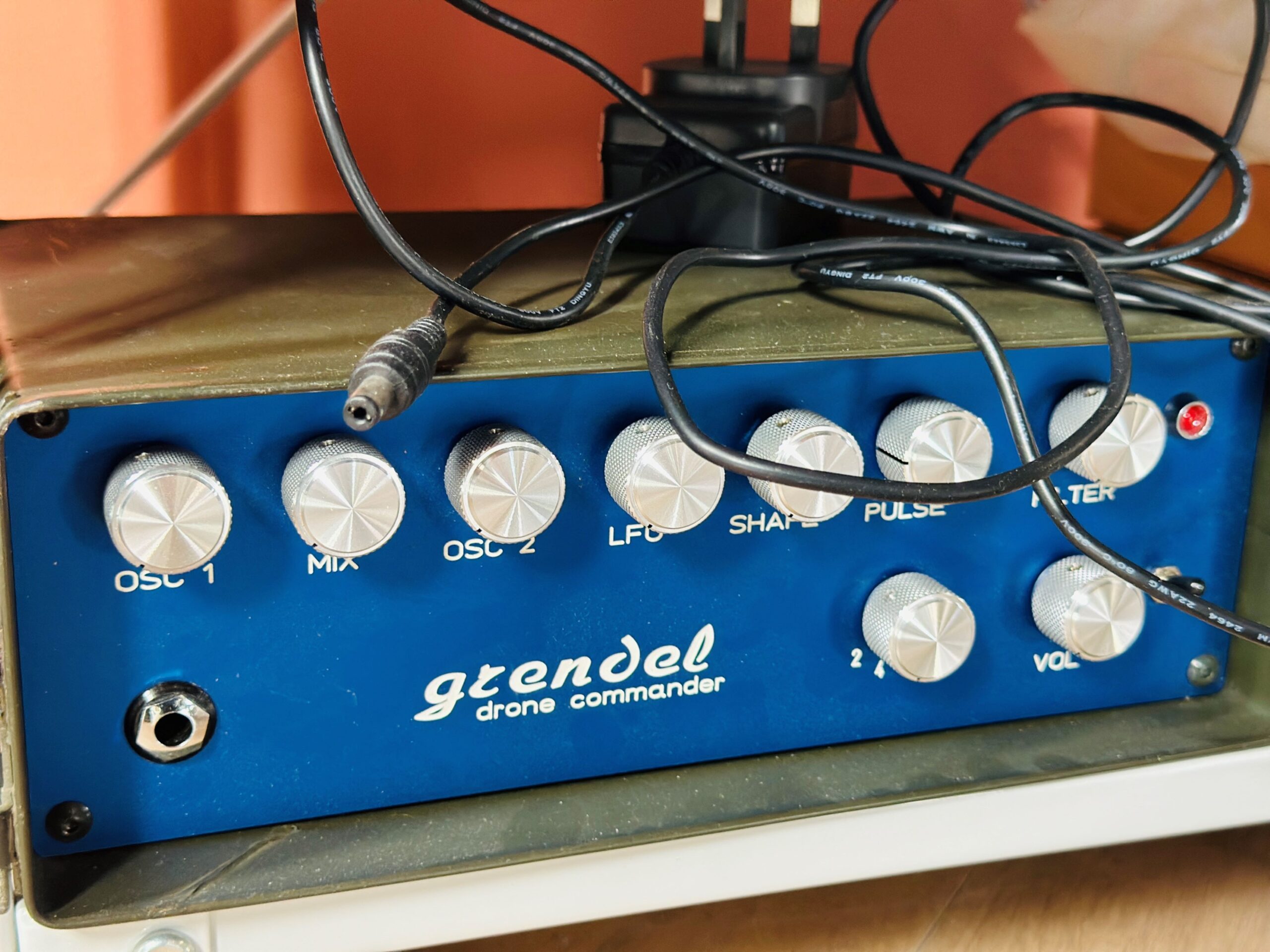
Show us your current studio
I live in an old textile factory so lots of space, with 5 metre ceilings in the studio and windows all around. It’s a great space.
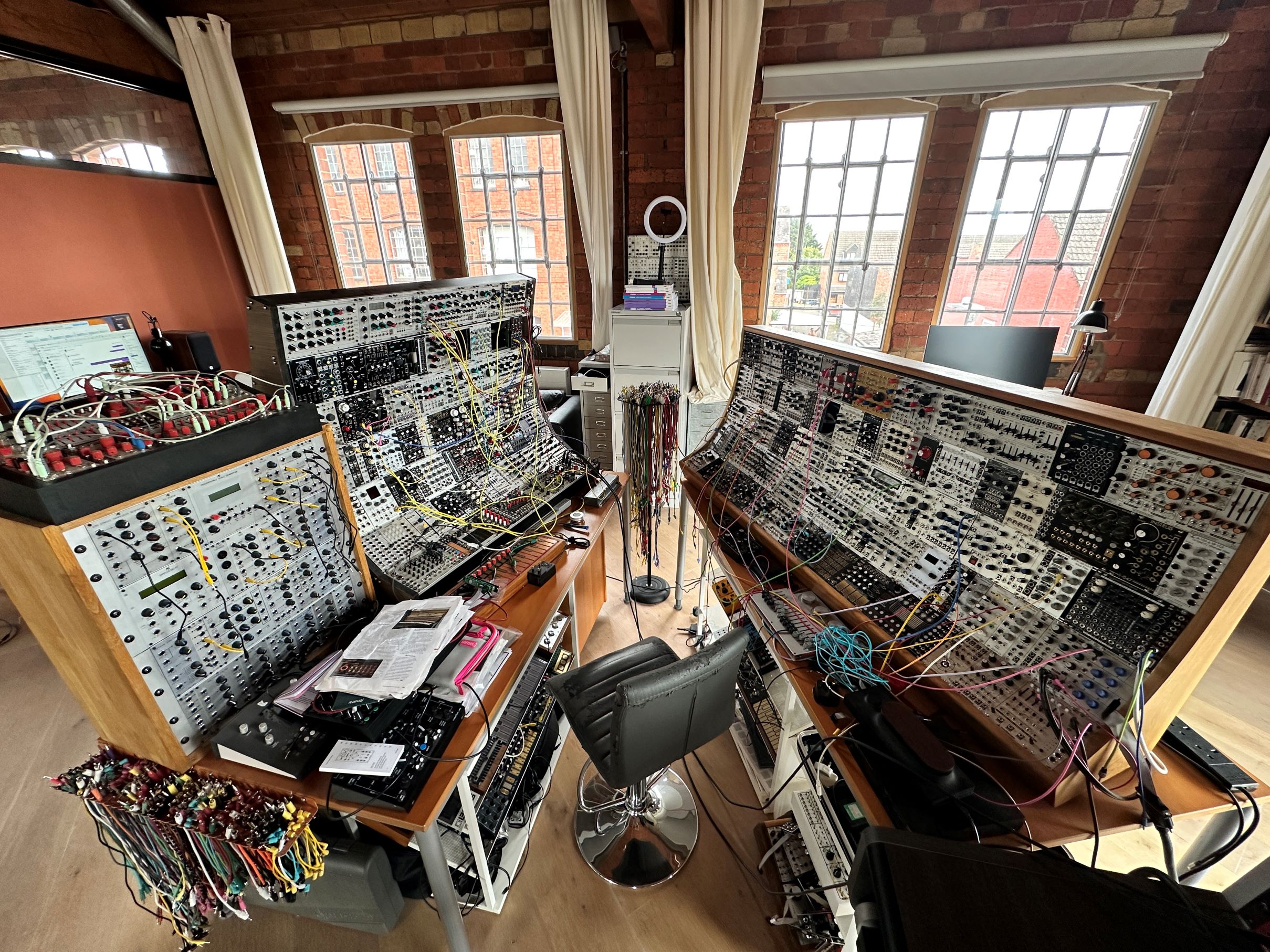
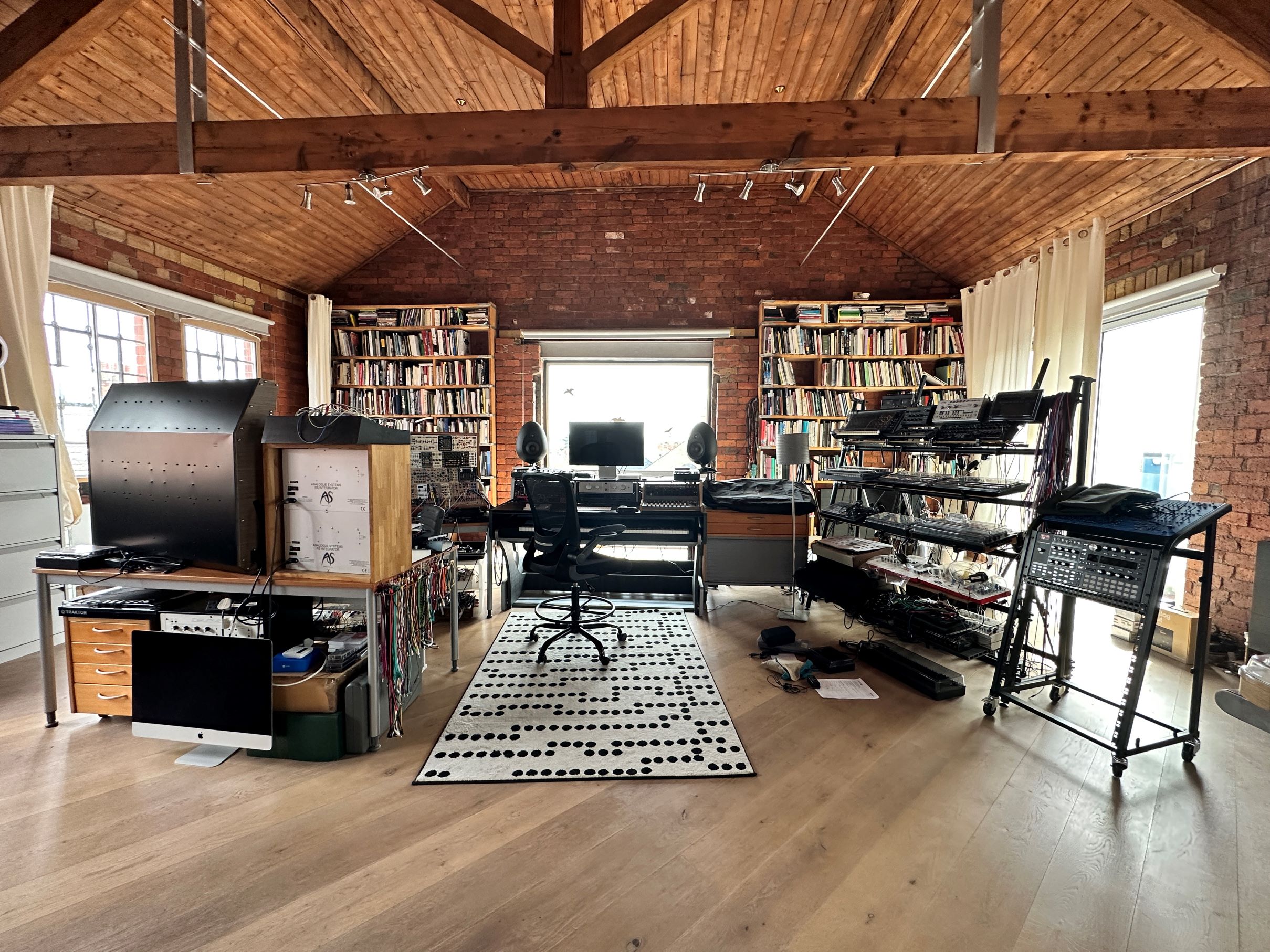
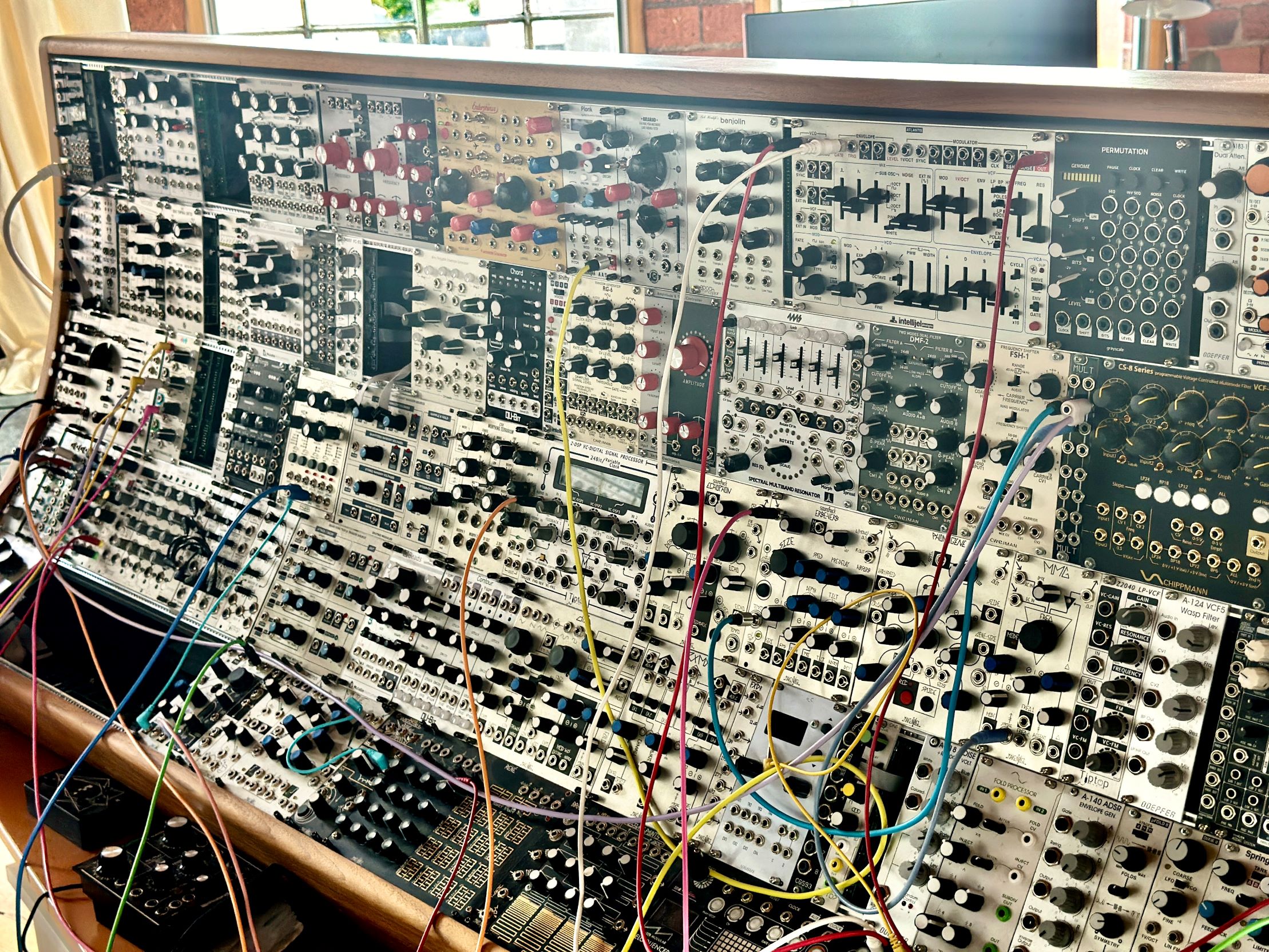
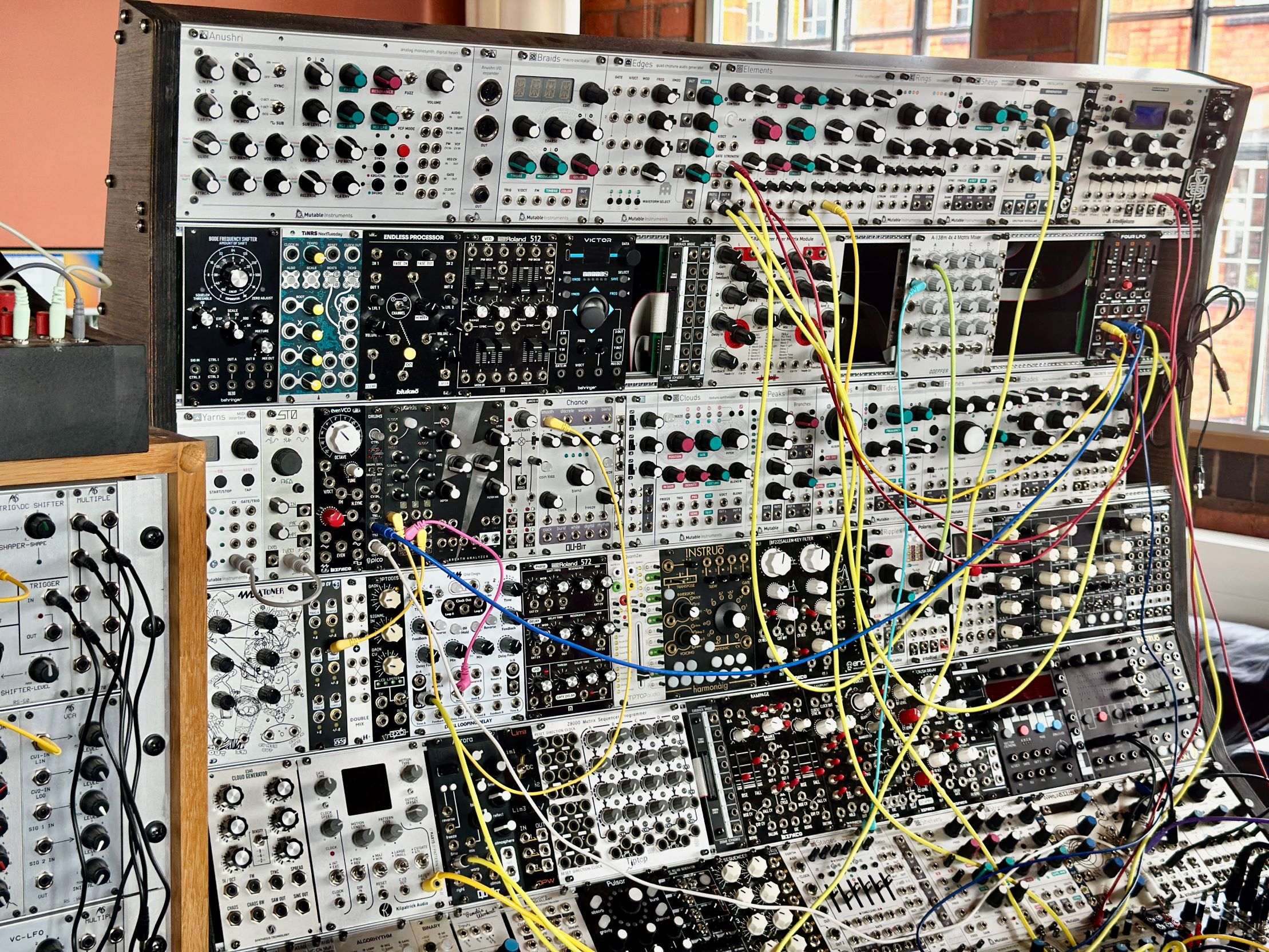
Best creative advice that you’ve ever heard?
Lemmy of Motörheard always advised to travel with a spare pair of trousers, which, believe me, is invaluable insider knowledge. Otherwise, John Cage has long been my inspiration in terms of creative thought. ‘Everything we do is music’ says everything it needs to!
Promote your latest thing… Go ahead, throw us a link.
How about my new album, The Berklee Sessions, which offers up a very fresh new look at where electronics and live players can combine
https://scanner.bandcamp.com/album/the-berklee-sessions